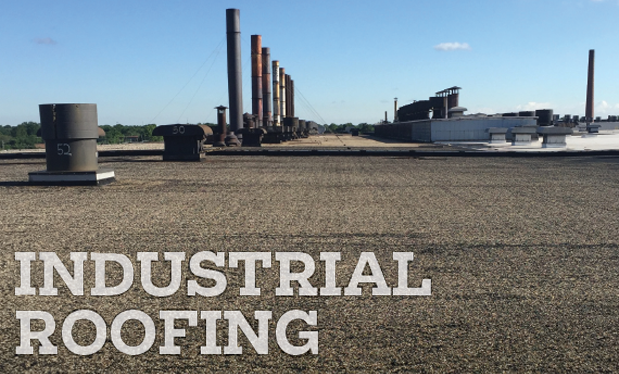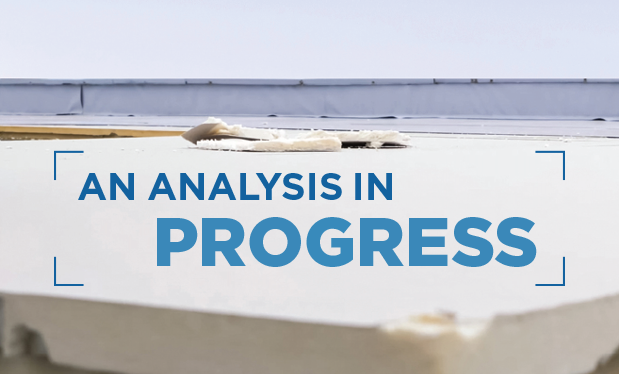If you work as a subcontractor under a general contractor on new construction projects, you probably face unexpected hindrances and obstacles related to performing your work and completing contracts. What you expect to be a profitable job completed within your estimated labor costs and original schedule can become an expensive nightmare. There are, of course, many reasons a job does not go as planned.
Sometimes, the reason a job goes badly is because the party with whom you’ve contracted violates the terms of your subcontract. For instance, if a general contractor fails to approve a valid change order request for extra work and you followed the proper procedures and are entitled to additional compensation, the general contractor breaches the contract by not paying for the extra work.
Given the self-serving and one-sided subcontracts promulgated by many general contractors, a general contractor’s unreasonable acts may not constitute a breach of contract. But that does not necessarily mean you are left without a potential remedy.
Implied duty
What if a general contractor, while not directly breaching the contract, acts in an unreasonable manner that significantly, adversely affects your performance? Suppose, for instance, a general contractor unreasonably delayed approving submittals or processing change order requests, causing you to incur substantial additional expenses or liquidated damages. Without an express contract provision governing the time period for a submittal or change order to be approved, you might think you would not be able to recover the extra expenses. However, you may have a remedy based on the covenant of good faith and fair dealing.
In addition to express contract terms, there is an implied contractual duty that parties act in good faith and deal fairly with one another. Although not invoked as frequently as is justified, every contract—including construction contracts—requires both parties to act in good faith and deal fairly. This implied duty, known as the covenant of good faith and fair dealing, is well-recognized by state and federal courts and also is included in the Uniform Commercial Code. You should consider asserting a claim based on breach of the covenant of good faith and fair dealing whenever a party with whom you have contracted acts in an unreasonable or improper manner.
The covenant of good faith and fair dealing first was recognized by the New York Court of Appeals in the 1933 case Kirke LaShelle Company v. The Paul Armstrong Company. The court said: “In every contract, there is an implied contract that neither party will do anything, which will have the effect of destroying or injuring the right of one party, to receive the fruits of the contract. In other words, every contract has an implied covenant of good faith and fair dealing.”
There is no specific definition of what constitutes a breach of the covenant of good faith and fair dealing. The concept is elastic and based on an examination of the facts. Judges and arbitrators exercise discretion when ruling on whether there has been a breach of the implied duty of good faith and fair dealing.
Contract terms
It is important to note the covenant does not change a contract’s terms. If you sign a contract with an unfair provision, do not expect to be saved by the covenant of good faith and fair dealing. The covenant applies to the conduct of the parties not the fairness of the contract terms. Before ruling on a claim for breach of the implied duty of good faith and fair dealing, a judge or arbitrator will examine the contract terms. If there is a contract term governing the conduct in dispute, the contract provision will be enforced unless it is void or unenforceable as a matter of public policy or there has been a waiver of the contract term.
The implied duty of good faith and fair dealing does not create duties that conflict with a contract provision. The covenant does not alter the express allocation of risks and benefits as stated in the contract. The implied duty of good faith and fair dealing prevents a party’s acts or omissions that, though not proscribed by the contract expressly, are inconsistent with the contract’s purpose and deprive the other party of what it reasonably expected.
The implied duty of good faith and fair dealing comes into play and fills a gap when there is not an express contract term governing the conduct in question. It supplements express contract terms to prevent a contracting party from engaging in conduct that, though not technically violating express terms, frustrates the other party’s rights to the benefits of the contract.
When a contract does not explicitly address an issue, the implied duty of good faith and fair dealing provides the legal doctrine to evaluate the reasonableness of a party’s conduct.
Some circumstances that will give rise to a breach of the implied duty of good faith and fair dealing include:
- Interference with the other party’s performance
- Failure to cooperate with the other party
- Acting in a manner that hinders the other party
- Abuse of discretion or power
- Lack of diligence in fulfilling contractual obligations
- Dishonesty in dealings with the other party
- Failure to communicate with the other party
- Evasiveness
- Deliberately performing in an incorrect manner
- Breach of an implied obligation
Subcontracts drafted by general contractors frequently grant general contractors the right to exercise discretion in several areas. The covenant of good faith and fair dealing can act as a brake on a general contractor’s abuse of discretion. Abuse of discretion occurs when a party who has been granted discretionary authority exercises discretion arbitrarily, capriciously or in a manner inconsistent with the reasonable expectations of the parties.
Courts tend to look at industry practices when considering each party’s reasonable expectations when they entered into the contract and what would be considered reasonable conduct during the performance of the contract. In a construction context, a claim seeking to recover damages sustained by a roofing subcontractor alleging breach of the duty of good faith and fair dealing might be asserted against a general contractor in the following situations:
- Requiring the roofing contractor to begin work before a job was ready for roof system installation, causing portions of the work to have to be redone
- Unjustified rejection of submittals
- Failure to perform necessary preceding work in a timely manner
- Unrealistic and arbitrary schedule revisions
- Unreasonable delay in responding to requests for information or change order requests
- Interference with the roofing contractor’s operations
- Blatant disregard for protection of installed roofing work from damage caused by other trades
- Arbitrary rejection of change order proposals
- Lack of honesty
Case decisions
In 2018, the U.S. District Court for the Middle District of Alabama’s decision in Peach State Roofing Inc. v. Kirlin Builders LLC found the general contractor, Kirlin Builders LLC, Rockville, Md., breached its subcontract with the roofing contractor, Peach State Roofing Inc., Atlanta, by wrongfully terminating Peach State Roofing and breaching the implied covenant of good faith and fair dealing by not communicating honestly and fully with Peach State Roofing and its improper administration of the contract. The court found Kirlin Builders breached the covenant of good faith and fair dealing by hindering the roofing contractor from completing its work, withholding critical information and actively misleading the roofing contractor.
In addition to not allowing Peach State Roofing to proceed with its work, Kirlin Builders’ communications with Peach State Roofing were contrary to its communications with the building owner and Kirlin Builders failed to inform Peach State Roofing about the owner’s concerns in a timely manner. Kirlin Builders represented to Peach State Roofing that it would continue as the roofing subcontractor but told the building owner Kirlin Builders would be replacing Peach State Roofing. Kirlin Builders further misrepresented to Peach State Roofing the reasons the building owner was dissatisfied with the roofing work, but the owner did not reject Peach State Roofing’s work for the reasons stated by Kirlin Builders to Peach State Roofing. This conduct caused the judge to conclude that the general contractor had breached the covenant of good faith and fair dealing.
In the 2014 case Metcalf Construction Company Inc. v. United States, the U.S. Court of Appeals for the Federal Circuit, which hears appeals of federal government contract claims, considered the standard for breach of the covenant of good faith and fair dealing under a contract between the federal government and a construction contractor. The trial court had ruled the government only would be liable for breach of the covenant of good faith and fair dealing when the evidence showed the government was “targeting” or exhibiting animus toward the contractor. In reversing the decision of the U.S. Court of Federal Claims, the U.S. Court of Appeals for the Federal Circuit ruled the trial court’s view of what constituted a breach of the duty of good faith and fair dealing was too narrow and discussed general guidelines how the covenant of good faith and fair dealing should be applied in federal government contract cases.
In its decision, the U.S. Court of Appeals for the Federal Circuit adopted an expansive view of the implied duty of good faith and fair dealing. The court started its discussion by recognizing the U.S. Supreme Court had stated in its 2010 decision in Alabama v. North Carolina that “[e]very contract imposes upon each party a duty of good faith and fair dealing in its performance and enforcement” and ruled failure to fulfill that duty constitutes a breach of contract as does failure to fulfill a duty imposed by a promise stated in the agreement.
The trial court had said in its opinion that “incompetence and/or failure to cooperate or accommodate a contractor’s request do not trigger the duty of good faith and fair dealing unless the Government ‘specifically targeted’ action to obtain the ‘benefit of the contract’ or where the Government’s actions were ‘undertaken for the purpose of delaying or hampering performance of the contract.’”
The U.S. Court of Appeals for the Federal Circuit rejected this restricted view and said the focus should be on “faithfulness to an agreed common purpose and consistency with the justified expectations of the other party” and “[t]he covenant of good faith and fair dealing … imposes obligations on both contracting parties that include the duty not to interfere with the other party’s performance and not to act so as to destroy the reasonable expectations of the other party regarding the fruits of the contract.”
The court rejected the government’s argument that the contractor could not identify a contract provision that the government violated, ruling a breach of the implied duty of good faith and fair dealing does not require a violation of an express contract provision.
The court went on to say “[b]oth the duty not to hinder and the duty to cooperate are aspects of the implied duty of good faith and fair dealing.” In summary, the court said: “In short, while the implied duty exists because it is rarely possible to anticipate in contract language every possible action or omission by a party that undermines the bargain, the nature of that bargain is central to keeping the duty focused on “honoring the reasonable expectations created by the autonomous expressions of the contracting parties.”
A chance for relief
When you find a job is not going as planned because of unexpected and unreasonable conduct by the other party to the contract, you may want to consider asserting a claim for breach of the implied duty of good faith and fair dealing. Although some states may require there be a breach of contract in addition to breach of the covenant of good faith and fair dealing, the covenant of good faith and fair dealing provides a legal basis for a contractor who has suffered damages to obtain equitable relief.


